A garden should be a feast for the senses — not only during the bright daylight hours but also as evening falls and the world begins to quiet. Certain plants possess special qualities that make them especially enchanting at dusk. Jasmine is one of those timeless, elegant plants whose fragrance, appearance, and charm make it a quintessential evening garden favorite.
Whether you dream of a peaceful patio retreat or a romantic, moonlit floral escape, jasmine’s sweet perfume and delicate flowers offer a sensory experience that thrives in the evening atmosphere. In this article, we’ll explore what makes jasmine a great evening garden plant, its unique characteristics, the best varieties to grow, and practical tips for incorporating it into your twilight garden.
What Is Jasmine?
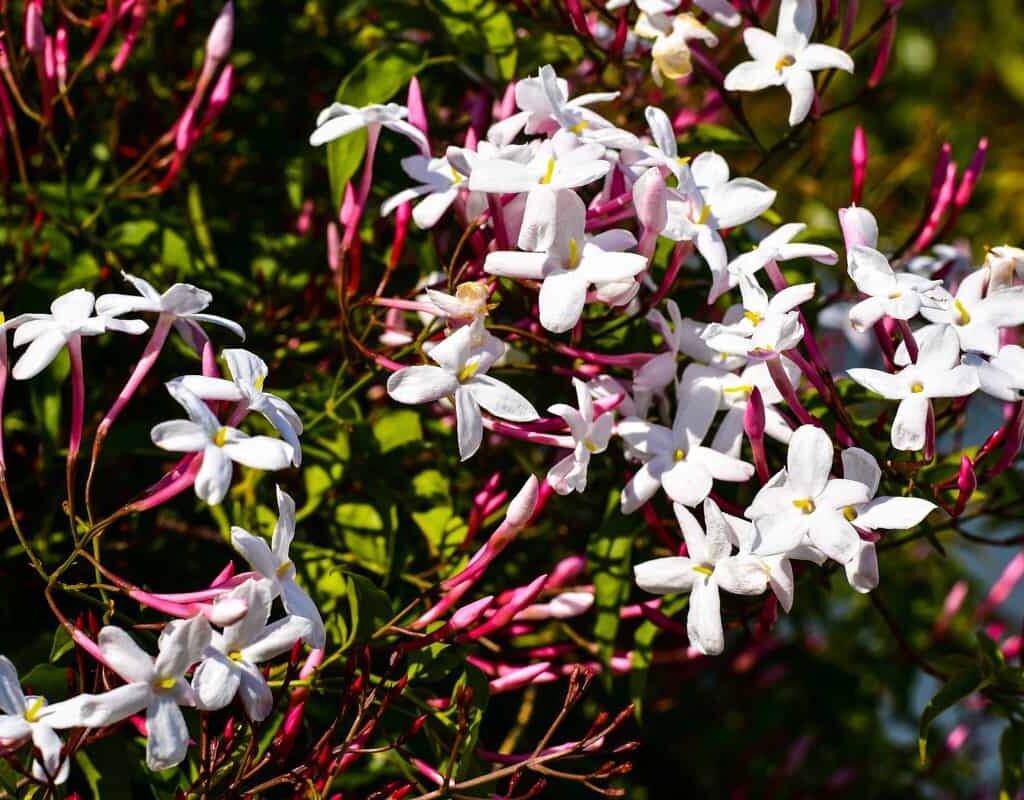
Jasmine refers to a group of over 200 species in the genus Jasminum, native to tropical and warm temperate regions. Known for their fragrant, star-shaped white or yellow blooms, jasmines can grow as shrubs, climbers, or groundcovers, depending on the variety.
Key Features:
- Intensely sweet, heady fragrance.
- Blooms typically open in the evening or at night.
- Flowers can be white, yellow, or pale pink.
- Popular in perfumes, teas, and essential oils.
- Adaptable to both tropical and subtropical climates.
Why Is Jasmine Ideal for Evening Gardens?
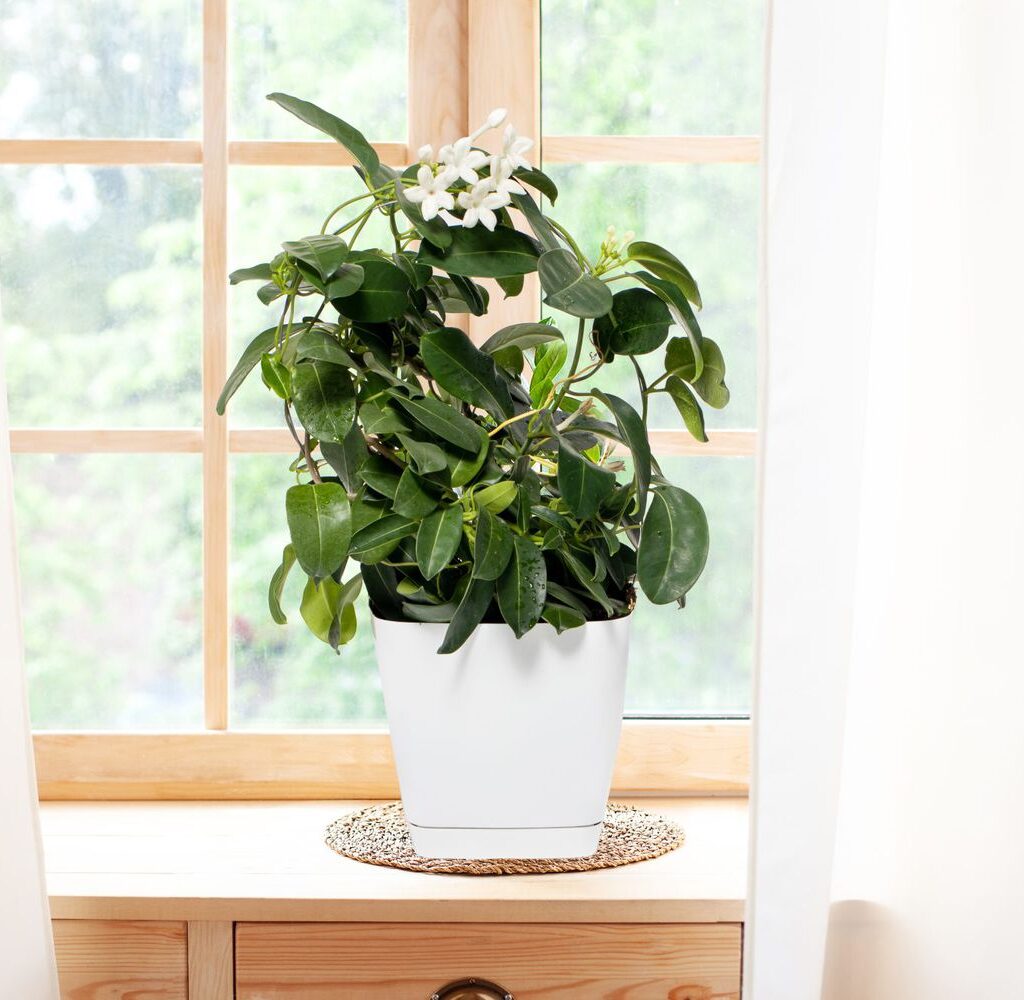
What makes jasmine stand out in an evening garden isn’t just its beauty — it’s the combination of fragrance, nocturnal blooming habits, pollinator attraction, and visual appeal that together create a memorable night-time garden experience.
Let’s explore these qualities in detail.
Sweet, Head-Turning Evening Fragrance
Perhaps the most celebrated feature of jasmine is its unmistakable, intoxicating scent. Many jasmine species are known to release their strongest fragrance at dusk and during the night, making them a natural star in evening gardens.
Why This Matters:
- As temperatures cool and air becomes still in the evening, jasmine’s fragrance lingers and drifts through outdoor spaces.
- Its rich, floral notes can transform patios, pergolas, and balconies into serene, aromatic retreats.
- The calming scent is known to promote relaxation, reduce stress, and even enhance sleep quality.
Pro Tip:
Plant jasmine near seating areas, doorways, or windows to fully enjoy its evening fragrance indoors and out.
Night-Blooming Varieties
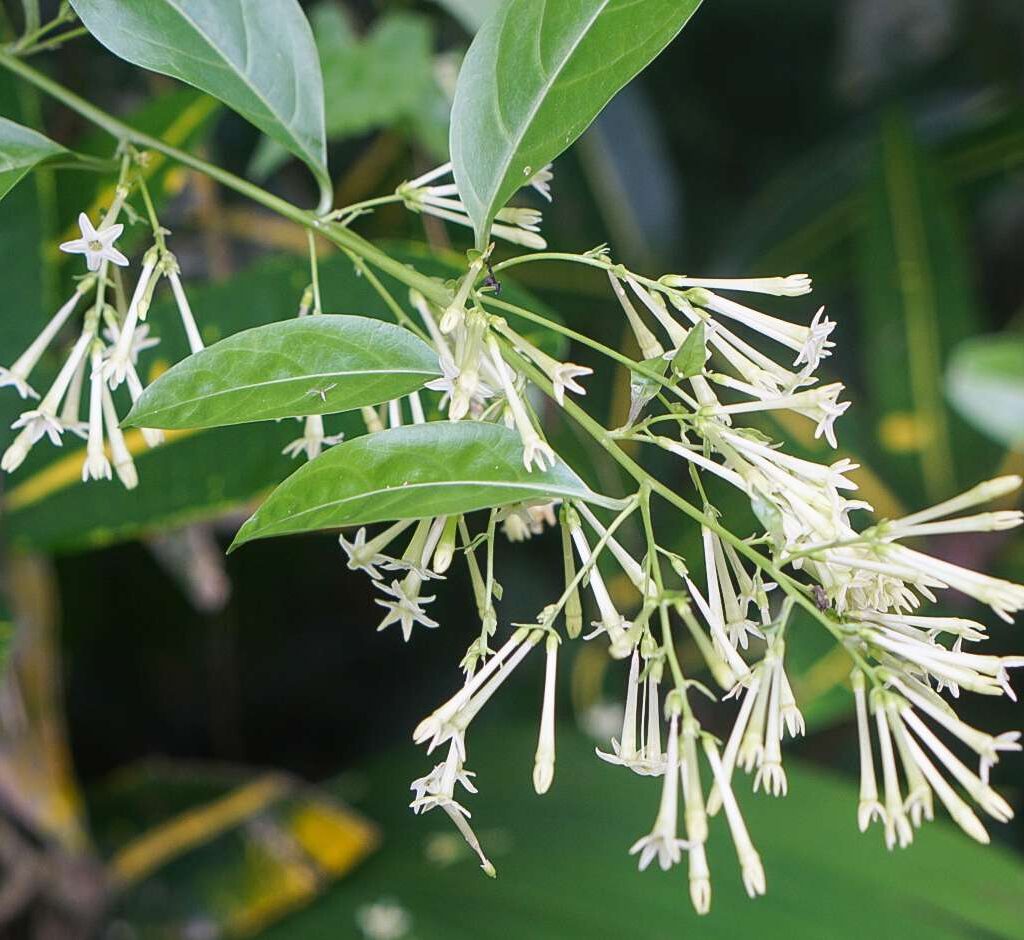
Some jasmine varieties are specially adapted to bloom or open more fully in the evening, enhancing their impact in twilight gardens.
Notable Evening or Night-Blooming Jasmines:
- Night-Blooming Jasmine (Cestrum nocturnum): Despite its name, it’s not a true Jasminum, but is famed for releasing a powerful scent after dark.
- Arabian Jasmine (Jasminum sambac): Opens at night and has a rich, warm perfume.
- Common Jasmine (Jasminum officinale): Fragrance intensifies after sunset.
Why It’s Special:
Evening and night-blooming flowers cater to nocturnal pollinators like moths and bats, adding ecological value to your garden after dark.
Elegant Appearance Under Soft Light
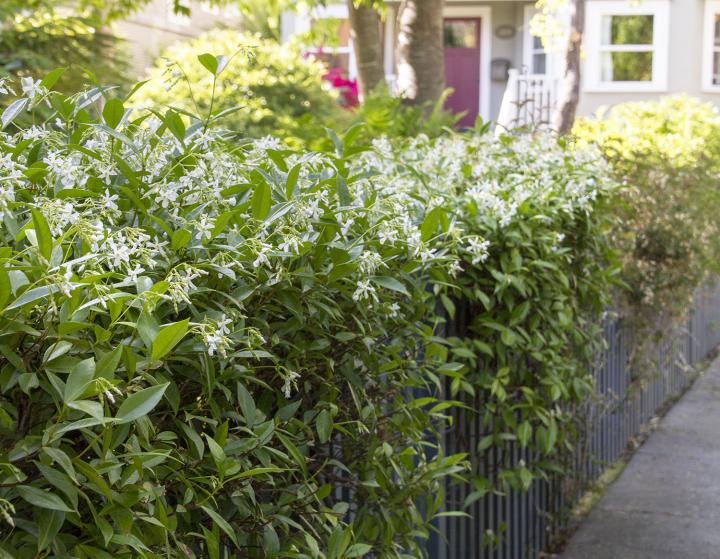
In the gentle glow of evening, jasmine’s delicate white or pale flowers seem to glow softly, reflecting moonlight and garden lanterns. Their subtle shimmer enhances the romantic, serene atmosphere of twilight spaces.
Visual Appeal:
- White flowers stand out against dark foliage and evening skies.
- Climbing jasmine varieties can adorn trellises, arbors, or fences for vertical beauty.
- Bush types can form fragrant hedges or container accents on patios.
Pro Tip:
Combine jasmine with other white or pale-hued night bloomers like moonflowers or evening primrose for a visually harmonious evening garden.
Attracts Nocturnal Pollinators
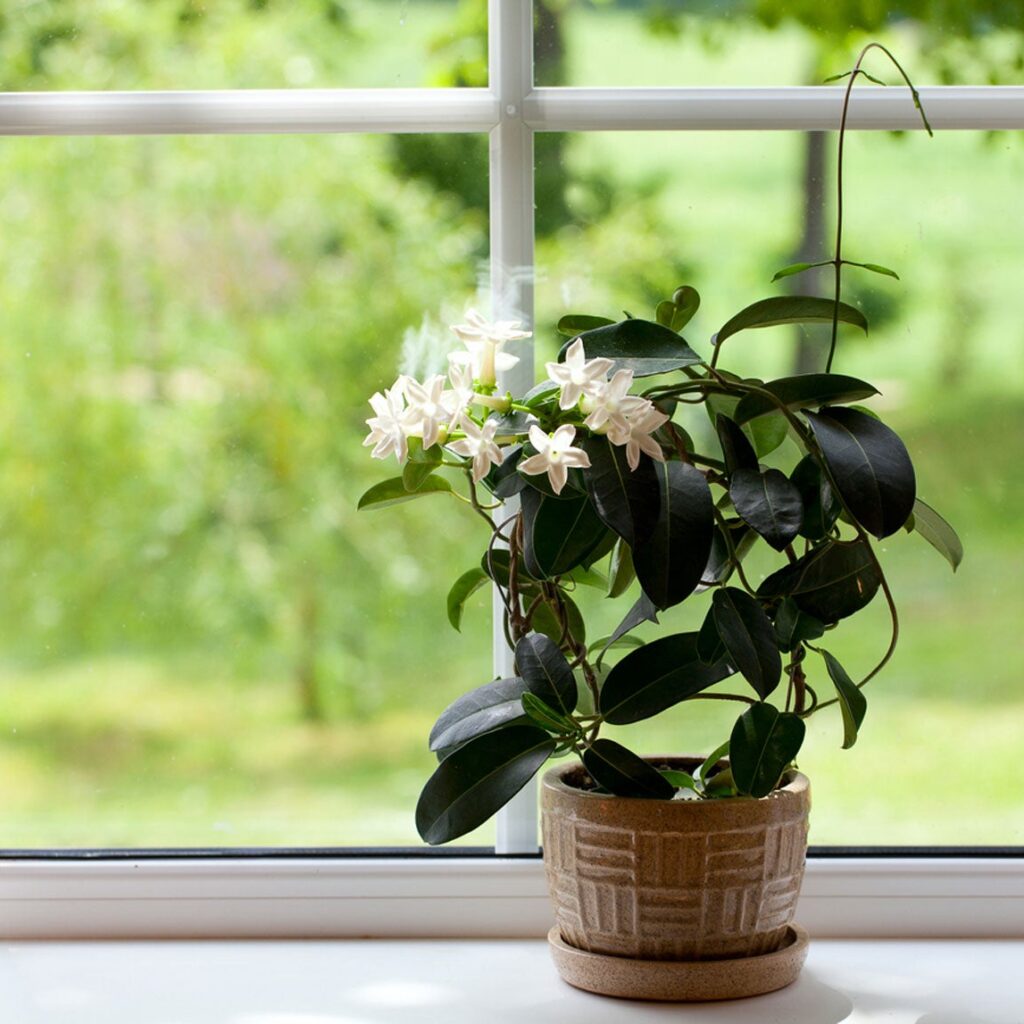
Jasmine’s fragrant, night-opening flowers act as a beacon for moths, bats, and beneficial night-flying insects. This not only supports local biodiversity but also ensures better pollination of nearby garden plants.
Why It’s Beneficial:
Encouraging nocturnal pollinators contributes to healthier ecosystems, aids in the pollination of neighboring plants, and reduces garden pests naturally.
Easy to Grow and Maintain
Most jasmine varieties are easy to cultivate, making them ideal even for beginner gardeners looking to enhance their evening garden.
Growing Requirements:
- Full to partial sun (4–6 hours of sunlight daily)
- Well-drained, moderately fertile soil
- Regular watering, especially during dry spells
- Light pruning to shape and encourage new blooms
Pro Tip:
In cooler regions, jasmine can thrive in containers and be brought indoors during winter.
Versatile Uses in Garden Design
Jasmine’s adaptability makes it suitable for a range of evening garden settings:
Where to Plant Jasmine:
- Along pergolas or trellises for climbing coverage.
- In containers for patios, balconies, or decks.
- As groundcovers or cascading from hanging baskets.
- Mixed into moon gardens for their pale blooms and night-time fragrance.
- Near garden pathways or entrances to greet visitors with evening perfume.
Pro Tip:
Combine jasmine with companion plants like lavender, nicotiana, and night phlox for layered evening scents and blooms.
Best Jasmine Varieties for Evening Gardens
If you’re planning to introduce jasmine into your evening garden, here are some of the best, beginner-friendly varieties to consider:
Top Picks:
- Arabian Jasmine (Jasminum sambac): Sweetly fragrant white blooms, ideal for containers.
- Common Jasmine (Jasminum officinale): Vigorous climber with delicate white flowers and intense evening fragrance.
- Star Jasmine (Trachelospermum jasminoides): Evergreen vine with glossy leaves and star-shaped white flowers.
- Night-Blooming Jasmine (Cestrum nocturnum): Extremely fragrant at night; ideal for borders and patios.
Conclusion
A truly memorable garden doesn’t fade away with the setting sun — it comes alive in new and captivating ways. Jasmine’s fragrant, night-opening blooms, reflective beauty, and pollinator-friendly nature make it an indispensable plant for any evening garden.
Its ability to fill outdoor spaces with intoxicating, calming scents as dusk falls creates an ambiance of relaxation, romance, and natural elegance. Easy to grow, versatile in design, and beneficial for nocturnal wildlife, jasmine offers both aesthetic and ecological rewards for gardeners who value the sensory charm of the twilight hours.
Whether trained over a pergola, clustered in containers, or blended with other moonlight blooms, jasmine transforms ordinary gardens into after-dark sanctuaries of scent and softness. So, if you’re dreaming of a night-time floral escape, jasmine is the perfect companion to bring your evening garden to life.





